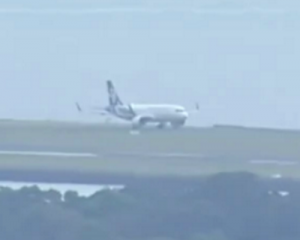After sitting through the statements of 91 of his victims, the man who terrorised Christchurch and the entire country has nothing to say in response.
The High Court at Christchurch has spent the past three days hearing victim impact statements from those directly affected by 29-year-old Brenton Harrison Tarrant’s murderous rampage at two of the city’s mosques.
Tarrant (29) has admitted 51 counts of murder, 40 of attempted murder and one of engaging in a terrorist act, after the gunman attacked Christchurch's Al Noor Mosque and Linwood Islamic Centre on March 15 last year during Friday prayers.
The Australian-born gunman pleaded guilty unexpectedly in March this year and is being sentenced in the High Court at Christchurch this week.
There has been rage, defiance, sadness, pity, compassion, prayer, forgiveness and many tears - almost the entire spectrum of the human experience in such devastating circumstances.
Tarrant has appeared to listen intently to the stories of grief but when asked by Justice Cameron Mander at the close of yesterday’s court session whether he would address the court today before sentence was passed, he said no.
Stand-by counsel Pip Hall QC - there to assist the defendant as he needs - said he would make a brief statement after Crown prosecutor Mark Zarifeh.
Amicus curiae Kerry Cook confirmed he would also speak briefly but the killer will likely learn his fate by lunchtime.
The options are limited.
Justice Mander will either hand Tarrant the first sentence of life imprisonment without parole or he will impose the longest non-parole period the country has ever seen.
The opinions of the victims have been clear — nothing but the harshest penalty available would be sufficient.
Youssef Abukwaik, whose brother was shot in the head, put it succinctly when he spoke yesterday.
"Show the same mercy he has shown to his victims."

Dunedin man Mustafa Boztas (22) agreed. He said he did not consider Tarrant to be human.
"You don’t have a future. You can live nowhere but the past, alone and lonely," he said.
"You’re not actually a human, not even animal, since animals are beneficial to the world."
Mr Boztas was shot in the thigh while worshipping at Al Noor mosque.
"You’ll be remembered but as a scared killer and nothing more," he said.
Among the accounts of horror were stories of heroism too, no more so than that of Abdul Aziz Wahabazadah who fought back against the gunman at the Linwood Islamic Centre.
He told the court he was praying close to the door when mayhem broke out.
At first he thought Tarrant - dressed in military attire with a camera mounted to his helmet - was a government official but then the bullets flew, he said.
He recalled looking for anything with which to defend himself and finding an ATM machine.
As the killer withdrew from the mosque, Mr Wahabazadah launched the machine at him.
Tarrant ducked out of the way and responded with volley of gunfire as the victim dived for cover.
Undeterred, Mr Wahabazadah pursued the defendant again, picking up an abandoned firearm from the ground.
"No bullets - lucky; it would’ve been a different story," he said.
However, his lack of firepower did not stop him.
Mr Wahabazadah chased the shooter back to the car he had parked at the entrance to the mosque and smashed a window with the weapon he was carrying.
"I could see fear in his eyes for his own life,"he told the court.
Tarrant sped off and police swarmed the centre, arresting Mr Wahabazadah because he was seen carrying the firearm.
At the station he was told the real killer had been apprehended.
"I said to the police: ‘Give me 15 minutes with me in the cell with him. I want to see how much guts he’s got without a gun’.
"They said, ‘No.’ I know, because they have to follow the law."
Before Mr Wahabazadah left the court, Justice Mander stopped him.












